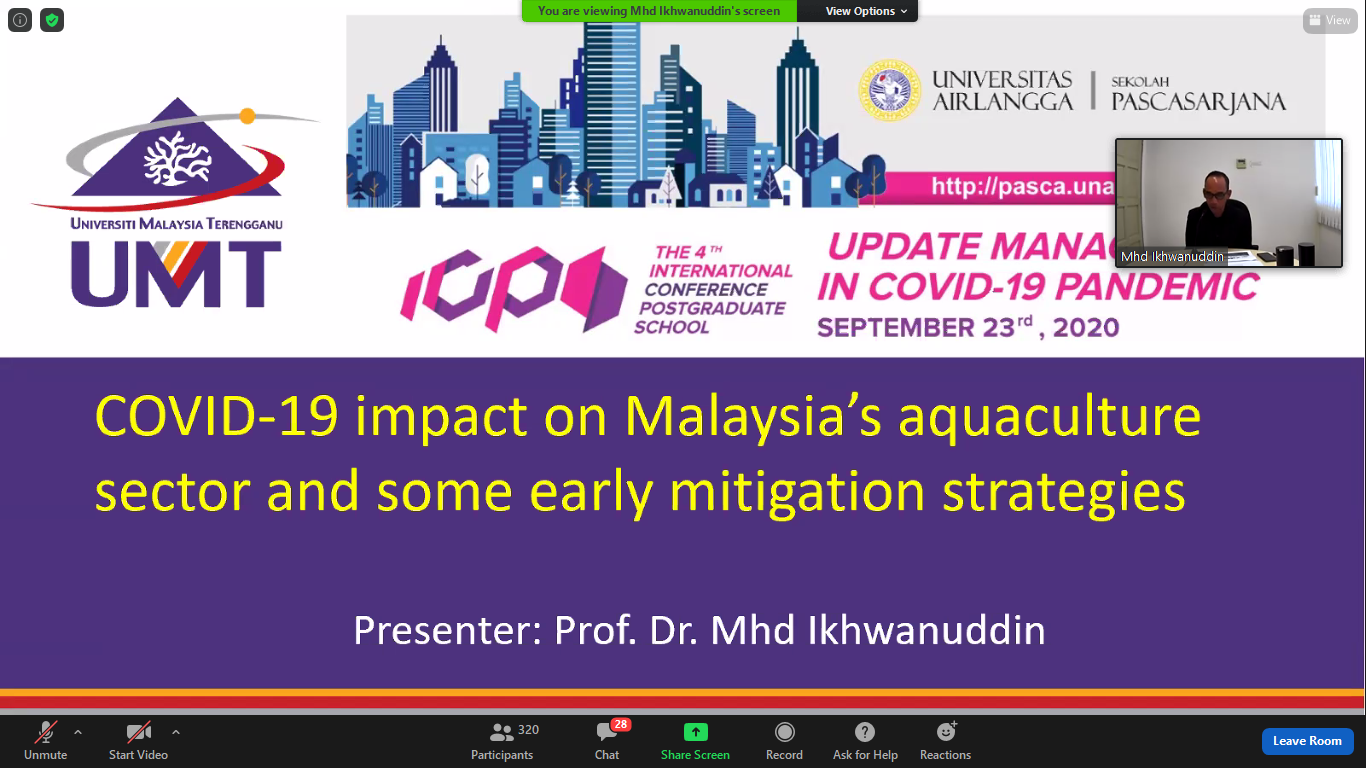UNAIR NEWS – The Covid-19 pandemic has a major impact on all sectors of life. As a result of the pandemic, many countries have restricted their movements. All elements of society are prohibited from holding gatherings that create crowds. In fact, not a few countries have closed access due to the pandemic.
Due to the pandemic, many people have lost their jobs. It results in disrupted food security of a country. Almost all countries in the world are currently fighting to survive the pandemic era, including Malaysia. Based on statistics, there are around 10,358 confirmed cases of Covid-19 there with 9,563 people recovered.
Various strategies have been carried out by the Malaysian Government in order to survive this pandemic. One of the strategies implemented is to improve the performance of the aquaculture sector. “We really depend on the seafood production sector,” said Prof. Dr. Mhd. Ikhwanuddin Abdullah at a webinar held by Universitas Airlangga (UNAIR) Postgraduate School on Wednesday, September 23, 2020.
The professor of Aquaculture at University of Malaysia Trengganu revealed that the Covid-19 pandemic had an impact on the aquaculture sector in Malaysia. There are two important components. First, a decline in domestic and global demand. Second, cut off supply of seafood.
Small and Medium Enterprises (UKM) from various sectors, such as aquaculture, constitute 99% of the total companies in Malaysia. Therefore, the aquaculture sector is classified as the manufacturing sector of essential goods.
The Malaysian government and existing companies are working together to survive the crisis. The Malaysian government gives permission for the company or UKM concerned to continue operating in order to ensure food security and economic growth. They are also entitled to receive incentives offered by the Malaysian government and other institutions to reduce the existing crisis.
In the webinar on Update Management in Covid-19 Pandemic, Prof. Ikhwanuddin explained various ways in the aquaculture sector carried out by the Malaysian Government and could be applied by other countries, including Indonesia. First, build as much supply chain as possible and divide it into various kinds to reduce damage to the seafood chain.
Second, companies or UKM can market products online and send them within a specified distance. Third, the government must be better at identifying individuals through existing local fishermen associations. Such identification efforts will ensure the livelihoods of workers and ensure a sustainable supply of fish.
Fourth, the government provides interest-free loans for at least one year to companies or UKM in the aquaculture sector.
In the end of the session, Prof. Ikhwanuddin also expressed his hopes for the webinar participants. “I think a similar situation is faced by the aquaculture sector in other countries. Hopefully what I have presented can be applied and useful for others, “he concluded. (*)
Author: Icha Nur Imami Puspita
Editor : Binti Q. Masruroh





